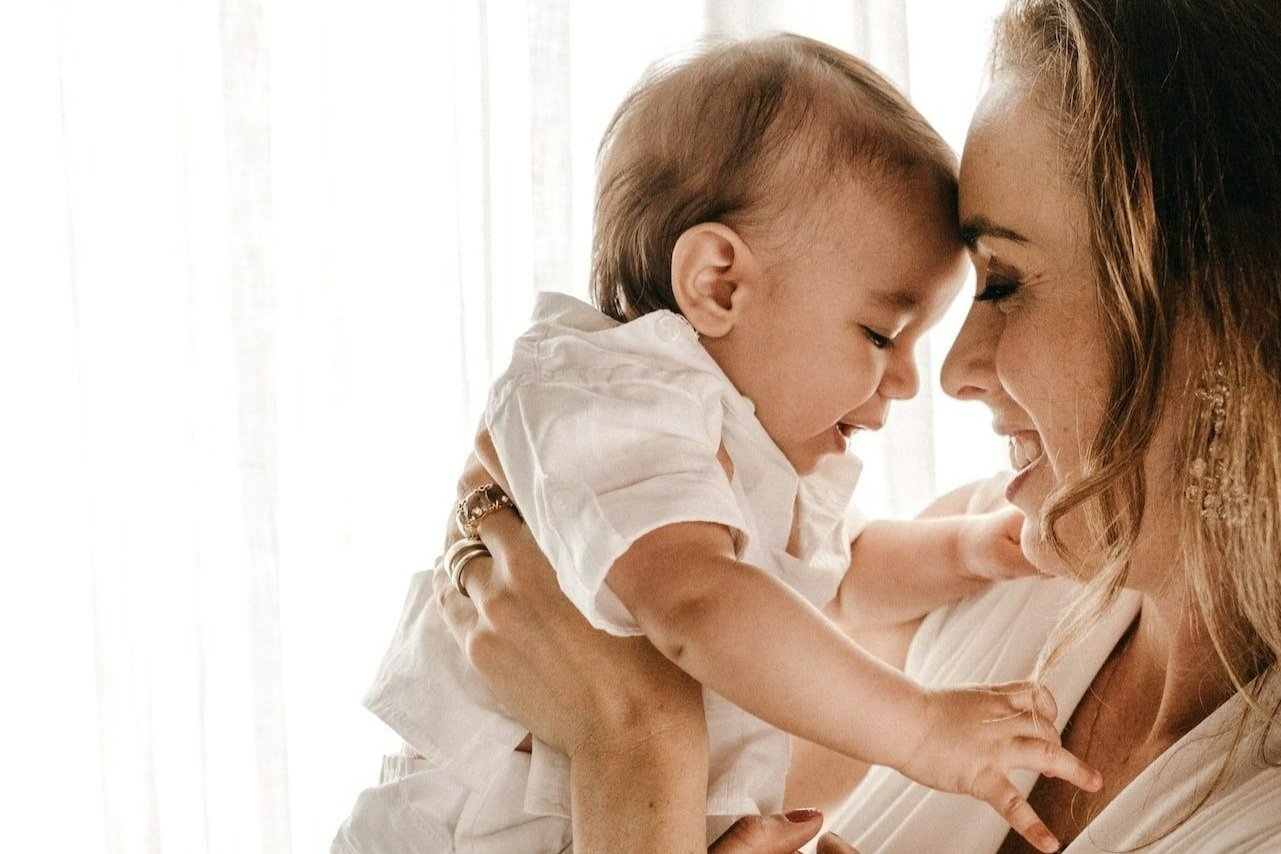
Postpartum Depression Therapist
Courage, Resilience, Competence
You are not alone, and you are not at fault. Being a new mom can be overwhelming.
Pregnancy Isn't What You Imagined
You might have imagined a pregnancy filled with joy and excitement. As the months progressed, you started to experience small shifts in your mood and an uneasy feeling in your body. You thought this was normal because your body was changing and this would go back to normal once the baby arrived. You look around you for clues and ways to change these feelings, but nothing is working. You are afraid you might develop postpartum depression and want to be healthy for your baby.
The Baby Is Home And You’re Not OK
Maybe you just had a baby, and you aren't feeling like yourself. You are having a hard time connecting with your baby and feeling guilty about this. The days end, but the next day isn't any better. You feel like you are "going crazy," "losing control," and fearful that "something bad" will happen. Your mood swings make you feel helpless. You may even experience extreme sadness and lack of sleep.
You find yourself thinking about everything and nothing. You refuse to believe these are symptoms of postpartum depression and try to stay busy. You are cleaning, counting, and checking. You dare not talk to anyone about this because you don't want others to worry or judge you. You scroll through your phone, and all you see are “perfect moms” with their “perfect lives.” You look at your body and wonder when your body will bounce back, followed by when your life will bounce back. Your self-confidence is diminishing, and you are starting to worry.
Birth Trauma
Maybe your pregnancy had a major obstacle, and it robbed you of the wonderful birth experience you were expecting. Maybe you are struggling to move forward and enjoy your baby, but you continue to feel uneasy, worried, and fearful. The childbirth experience was scary, and you can't seem to shake these thoughts. You feel anxious and depressed and know that it's related to this terrible experience you had. You wonder if this experience has traumatized you and don't know when it will go away.
Motherhood doesn't have to feel this way.
You don't have to suffer in silence. Motherhood is a major adjustment in a woman's life. Many mothers are struggling with anxiety disorders and depressive symptoms. You are not alone, and you don't necessarily need medications to overcome this. Working with a mental health professional can help you manage your feelings of sadness and symptoms of depression.
People with postpartum depression often avoid talking about their feelings and thoughts out of fear of being deemed unfit or broken. Psychotherapy is often the best solution for individuals trying to overcome difficult postpartum moods and major life transitions.
In our work together, you will learn to manage the various symptoms that come up for you, such as depression, anxiety, fear, anger, and rage. You will approach this change in your life with knowledge and kindness and work on letting go of expectations, perfection, and self-doubt. You will learn to enjoy your "nesting" time and to be patient and compassionate with yourself.
If you experienced birth trauma, postpartum anxiety, and even baby blues after childbirth, we will process your experience, help you build a pregnancy-birth narrative, and unburden the impact of this trauma together. Ultimately, you will learn to trust the process, trust your body, and trust your baby.
Counseling for Perinatal-Postpartum Depression & Anxiety can help you:
Learn to prioritize self-care and place your needs first
Find ways to lean on others to help you during your maternal journey
Communicate your needs and get what you want
Accept imperfection and stop self-criticism
Share your thoughts and fears as they come up to get the support you need
Allow others to nurture you while you nurture your baby
Trust that you will adjust to motherhood and that things will get better
Learn how “mothering behaviors” such as gazing, vocalization, and touch can improve your connection to your baby
Learn how hormones pre/post pregnancy, genetic pre-disposition, and past pregnancy experiences can influence perinatal and postpartum conditions

Let's build your confidence and get you back to being the mother you dreamed of being.
Areas Of Expertise
Perinatal Depression and Anxiety
Postpartum Depression and Anxiety
Birth Trauma
Bonding Struggles with Your Baby

Frequently asked questions about Perinatal & Postpartum Counseling
FAQs
-
It is natural to have a wide range of emotions while pregnant. If your everyday living changed ONCE you became pregnant or had a baby, you are probably affected. Some of the signs of postpartum depression would be feeling hopeless, sad, worthless, crying all the time, feeling fatigued, having sleep and appetite problems, struggling with suicidal ideation, feeling anxious, having panic attacks, and feeling increased physiological arousal. Severe postpartum depression may manifest as mania, obsessive-compulsiveness, intrusive thoughts, psychosis, and PTSD. Your symptoms can be mild-to-severe. It is estimated that 1 in 7 women and 1 in 10 fathers are affected by postpartum depression symptoms.
-
First, you should secure your free 15-minute consultation. If we are a good fit, we will schedule your initial evaluation and subsequent therapy sessions.
-
You are the expert of you, and you can take your time making this decision.
-
The following are the insurances I am credentialed with through Hello Alma: Optum and Aetna (within these are the following programs):
Cigna
Optum
• United Health Care
• United Health Care shared Services (UHSS)
• GEHA-United Health Care Shared Services (UHSS)
• United Health Care Global
• United Health Care Exchange Plans (ONEX)
• Oscar
• Harvard Pilgrim
• Oxford
• UHC Student Resources
• UMR
• All Savers (UHC)
• Health Plans Inc
• Surest (formerly Bind)
Aetna
• Meritain
• Nippon
• Allied Benefit Systems
• GEHA-United Health Care Shared Services (UHSS)
• Trustmark
• Trustmark Small Business Benefits
• Health Scope
• Christian Brothers Services


